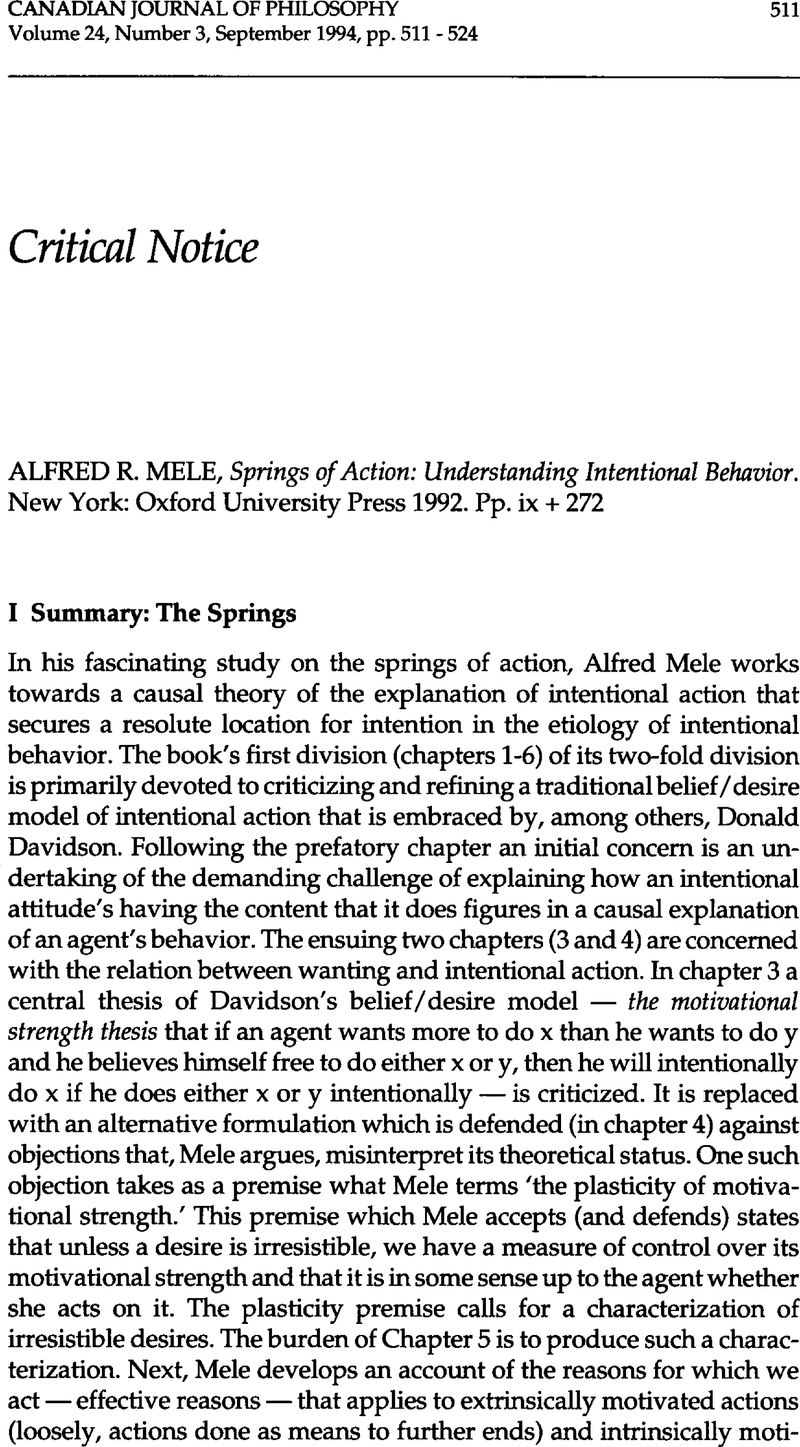Published online by Cambridge University Press: 01 January 2020

1 On Frankfurt-type cases, cf. Harry, G. Frankfurt’s ‘Alternate Possibilities and Moral Responsibility,’ Journal of Philosophy 66 (1969) 828-39.Google Scholar
2 For discussion of a contrary intuition, cf. Harry, G. Frankfurt ‘Freedom of the Will and the Concept of a Person,’ Journal of Philosophy 68 (1971) 5-20Google Scholar.
3 Holly, Smith ‘Varieties of Moral Worth and Moral Credit,’ Ethics 101 (1991) 279-303Google Scholar; David, Widerker ‘Frankfurt on “Ought Implies Can” and Moral Responsibility,’ Analysis 51 (1991) 222-4Google Scholar
4 Ishtiyaque, Haji ‘Alternative Possibilities, Moral Obligation and Moral Responsibility,’ Philosophical Papers 22 (1993) 41-50Google Scholar
5 See John, M. Fischer’s ‘Responsibility and Failure,’ Proceedings of the Aristotelian Society 86 (1985/86) 251-70Google Scholar; and John, M. Fischer and Mark, Ravizza’s ‘Responsibility and Inevitability,’ Ethics 101 (1991) 258-78.Google Scholar
6 Discussions germane to the asymmetry thesis can be found in my ‘A Riddle Regarding Omissions,’ Canadian Journal of Philosophy 22 (1992) 485-502; in Michael, Zimmerman An Essay on Moral Responsibility (Totowa, NJ: Rowman and Littlefield 1988)Google Scholar; and in Fisher and Ravizza, ‘Responsibility and Inevitability.’
7 For an excellent discussion on akratic action, cf. Alfred, R. Mele’s Irrationality: An Essay on Self-Deception and Self-Control (New York: Oxford University Press 1987)Google Scholar.
8 The example is from Irrationality, 22.
9 John Christman’s anthology The Inner Citadel (New York: Oxford University Press 1989) contains instructive essays on hierarchical and other theories of autonomy.
10 For a study on the relevance of higher order desires to understanding akratic action, cf. Alfred, R. Mele’s ‘Akrasia, Self-Control, and Second-Order Desires,’ Nous 26 (1992) 281-302.Google Scholar
11 Mele suggests, as well, that since many of our intentions are formed, in significant part, on the basis of our assessment of the objects of our wants, it is not surprising that an agent may intend to A and yet not be most motivated to A.